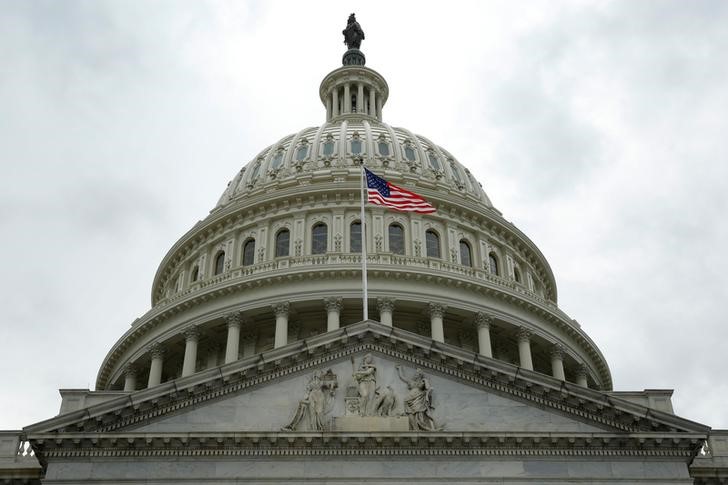Gold prices hit 2-week high as Trump-Fed feud escalates with Cook firing
Investing.com - Republican lawmakers in Congress have been debating and finalizing pieces of legislation related to tax cuts and spending reductions in U.S. President Donald Trump’s "big, beautiful" bill, as they race to pass the measure before May 26.
The bill would then go to the Senate, with Trump aiming to sign it into law by July 4.
Crucially, Republicans, who control both chambers of Congress, will be able to utilize a rule known as "reconciliation", which allows for a 60-vote filibuster threshold to be bypassed. This would mean that the GOP could pass Trump’s bill without support from Democrats.
But media reports have suggested that there have been major disagreements within the Republican Party, with some lawmakers uneasy about deep reductions to government healthcare programs like Medicare and others complaining that not enough is being done to rightsize the more than $36 trillion U.S. debt pile.
According to the Wall Street Journal, Republicans have also been at odds over proposals to phase out tax credits for renewable energy producers, which was a major pillar of former President Joe Biden’s Inflation Reduction Act in 2022. Some Republicans want these credits to be axed immediately, while another group of GOP representatives are frustrated that these are being discontinued, the WSJ said.
Meanwhile, Republicans from high-tax states like California and New York have registered their concerns about revised caps to state and local tax -- or SALT -- deductions.
Taken together, reports say the major pillars of Trump’s budget legislation -- which would see the extension of tax cuts instituted during the president’s first term -- may add around $36.2 trillion to the country’s debt over the next decade. The tax cuts themselves would cost $3.72 trillion, Reuters reported.
"The bill [...] makes good on many of Trump’s campaign promises (like no tax on tips or overtime, a deduction for seniors, and deductible interest on auto loans), deals with SALT, provides large capex incentives, curtails the renewable subsidies in the Inflation Reduction Act, and proposes an array of tax increases to offset the cost of new cuts," analysts at Piper Sandler said in a note to clients.
The brokerage estimated that the legislation would expand the budget deficit "meaningfully" in the short-term -- by 0.2% of gross domestic product in the 2025 fiscal year and about 0.9% of GDP in the following year.
Still, the bill could change a number of times prior to its final passage, the Piper Sandler analysts noted, adding that House committees will have the chance to "mark up" -- or debate, amend, or rewrite legislation -- over the coming days. The Senate will also have its own draft as well that will need to be reconciled with the House’s version.
"We still believe this reconciliation package is on track to pass before [the] August [Congressional] recess," the analysts predicted.
(Reuters contributed reporting.)
